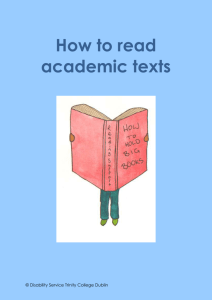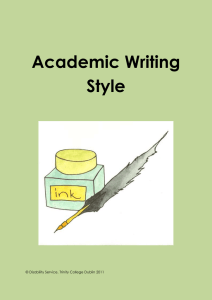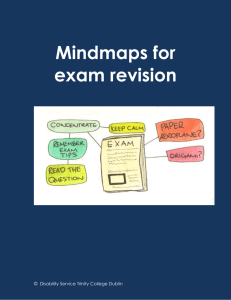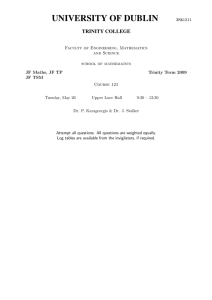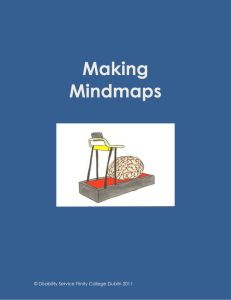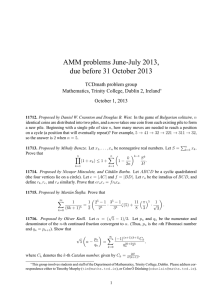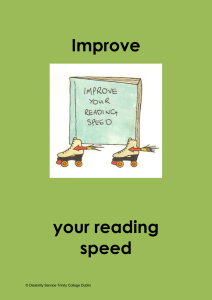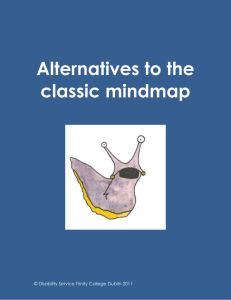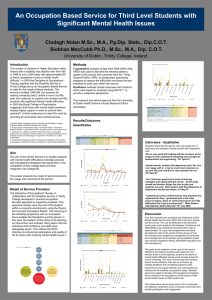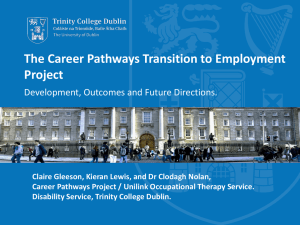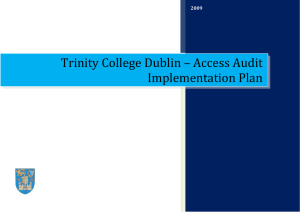Memory techniques
advertisement
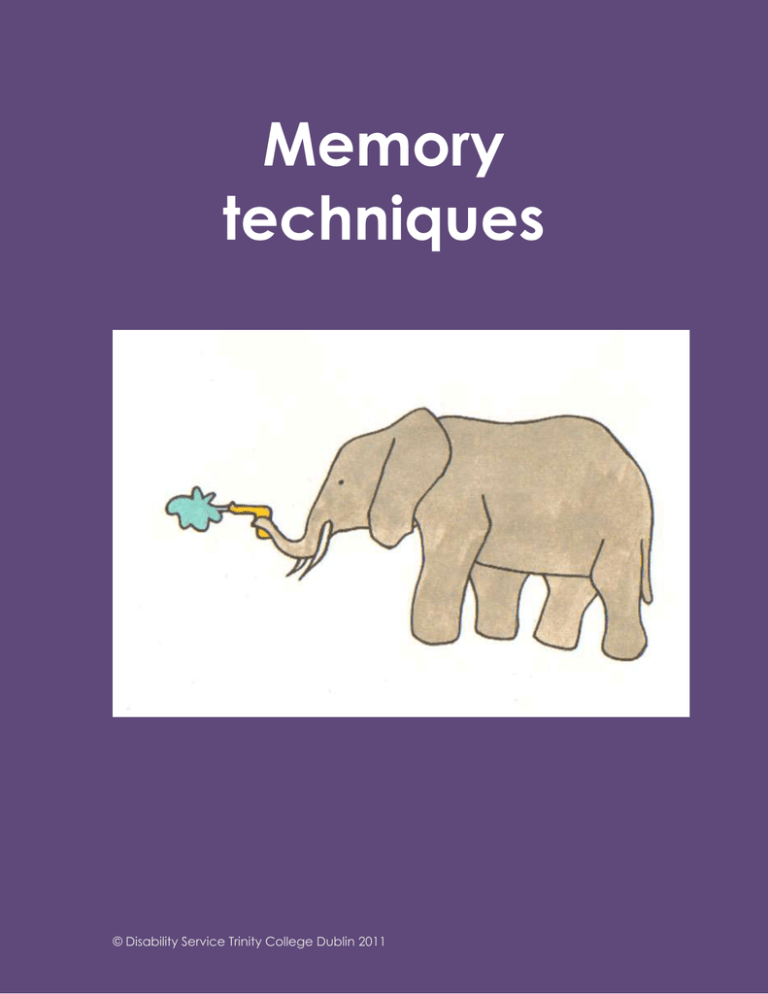
Memory techniques © Disability Service Trinity College Dublin 2011 Most people use less than 2% of their total brain capacity…………….. ……………. so what are they doing with the remaining 98% ? Can you spare a few minutes a day to improve your brain performance? 3 things to do every day: Have a discussion with at least one other person for at least 15 minutes……a conversation that means you listening and responding in a thoughtful way. Do a crossword (or soduko if you prefer). Eat with your ‘other’ hand. This might sound ridiculous at first, but it really is an effective brain fitness exercise. Your mind is so used to you eating with one hand that switching it will cause you to really focus. It's the same as brushing your teeth with the opposite hand. It might sound easy, but once your try it, you'll see how much you have to focus to complete the task successfully. Methods to help you to memorize: Before you begin a study session, plan what you want to remember. Write very short bullet points of information you need to remember and repeat them aloud. Paraphrase (put it into your own words). Write summaries (could be a paragraph, notes, drawing etc.). © Disability Service Trinity College Dublin 2011 Highlight the key words in the text that the ideas are centred around. Quiz yourself. Outline paragraphs using headings. Classification (labelling, categorising, ordering), for example: Type of rocks: 1. Properties 2. Case studies / location 3. Uses. Watch this podcast on great ways to remember things http://www.dystalk.com/talks/23-ed-cooke-and-some-nifty-memorytricks Strategies for learning by heart: Look, say, cover, write and check Use mnemonic devices, including Acronyms (Naughty Elephants Squirt Water for compass points) Rhymes (a very simple example is the '30 days hath September' rhyme). © Disability Service Trinity College Dublin 2011 There is also an excellent website ‘Think a Link’ a fun and easy way to remember things like this http://www.thinkalink.co.uk/category For example difficult words to spell: Our accommodation needs 2 cots and 2 mattresses seeing as we now have twins. © Disability Service Trinity College Dublin 2011 Using flashcards 1. Pack of blank index cards 2. Write a key word, phrase, date, name or whatever is relevant on one side. 3. Write the definition, description or explanation on the other side. 4. Mix all the cards so that they are in no specific order. 5. Test yourself. Read the keyword / name/ date and say the answer out loud. 6. Turn the card over and check your answer. 7. Correct in one pile, incorrect in a second pile, ‘correctish’ in a 3rd pile. 8. Repeat for all cards. 9. Repeat with the ‘incorrect’ and ‘almost’ cards until all are correct. 10. You can do this alone, in a study group or with a study partner, you can ask friends and family to test you. You can test yourself on the bus / Dart / Luas, waiting for an appointment etc. Keep them in your bag. Do not keep the cards in the same order, otherwise you will rely on information coming up in the same sequence. Embrace your inner randomness. © Disability Service Trinity College Dublin 2011 Toilet postcards! Courtesy of www.teachit.co.uk Same technique as above as follows: For a piece of text, poem, play, quotation, theory……. Put title, author, year and short quotation on a blank postcard. Draw (or cut out of magazine if not artistic) a picture / cartoon / symbol that will help remind / jog your memory. Stick the postcard on your toilet wall. Repeat until toilet is decorated. Review and reflect at leisure………… © Disability Service Trinity College Dublin 2011
